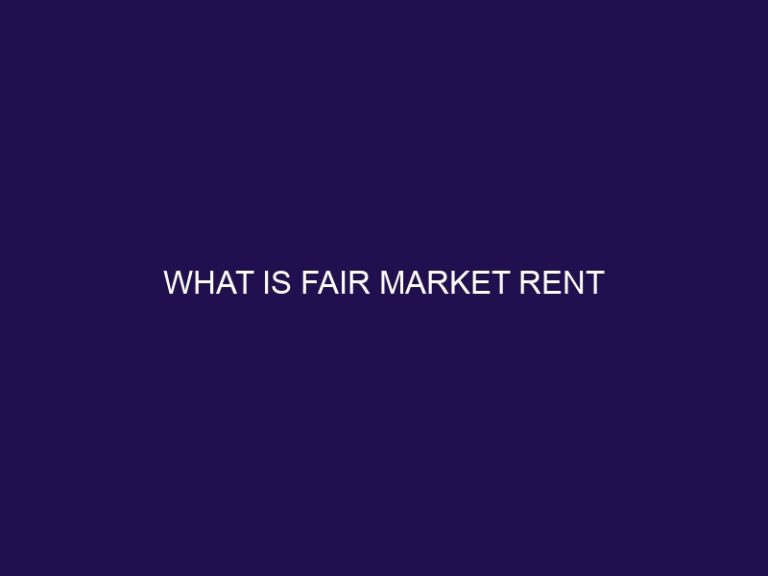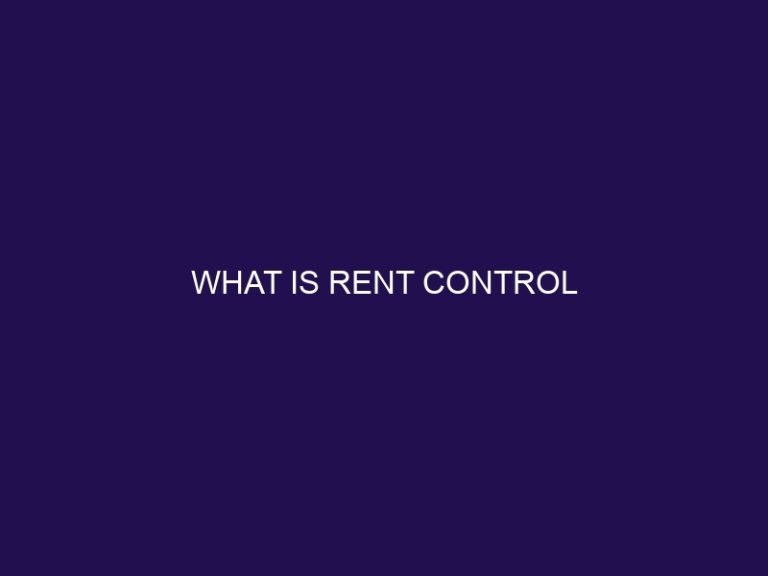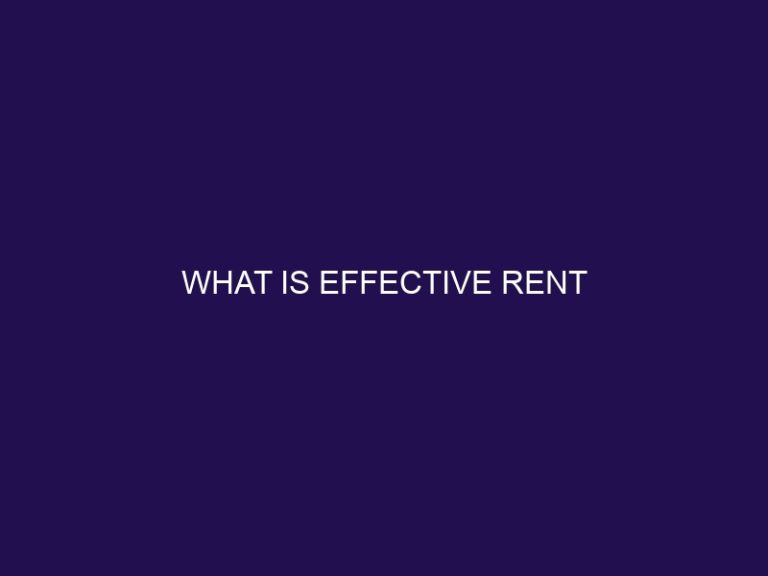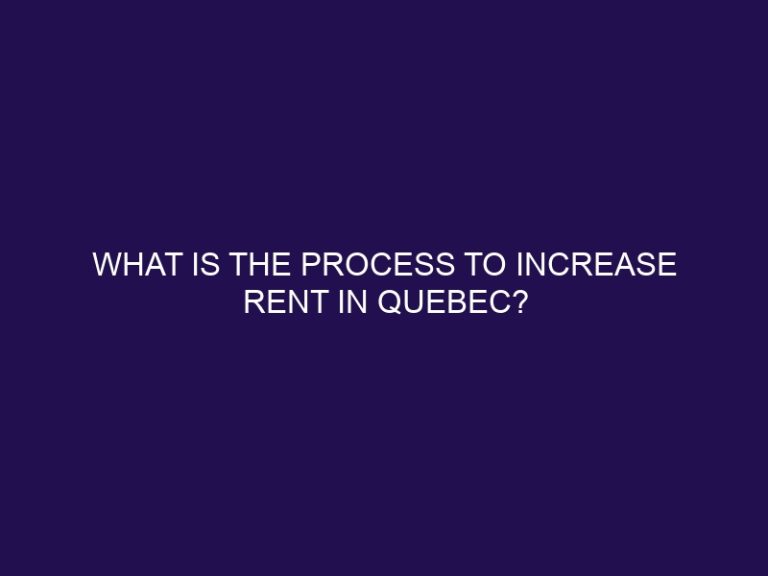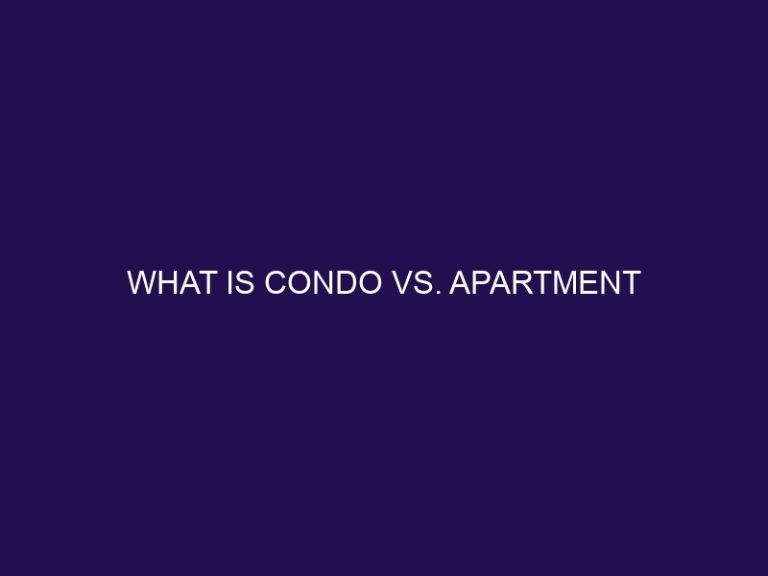What is a Squatter
Squatting is a complex issue that affects many communities around the world. Understanding what it means to be a squatter, the different types of squatters, the causes behind squatting, and the rights and legal issues associated with it is important in order to address this problem effectively.
A squatter, as defined in this article, refers to an individual or a group of people who occupy an empty or abandoned property without the owner’s permission or legal rights. Squatting can take various forms, including residential squatting, commercial squatting, and land squatting, each with their own unique characteristics and implications.
Residential squatters are those who occupy vacant residential properties, often due to the lack of affordable housing options. Commercial squatters, on the other hand, occupy unused commercial buildings or spaces for various purposes. Land squatters occupy undeveloped or unclaimed land, usually for agricultural or residential purposes.
There are several causes behind squatting, including the lack of affordable housing, economic instability, and social or political issues. These factors often leave individuals and families with no other option but to occupy abandoned properties in order to find shelter or establish a livelihood.
Understanding the rights and legal issues surrounding squatting is crucial. Adverse possession laws, which vary by jurisdiction, provide certain rights to squatters who occupy a property for an extended period of time. The eviction process can be challenging and time-consuming, necessitating legal action on the part of the property owner. Squatters’ rights movements have emerged to advocate for the rights of squatters and address the underlying social and economic issues that contribute to squatting.
However, squatting is not without its problems. Property damage, public health and safety concerns, and the impact on local communities are all significant issues associated with squatting. These problems can have far-reaching consequences and require proactive solutions.
Preventing and dealing with squatters requires a multi-faceted approach. Securing vacant properties through measures such as increased surveillance and property maintenance can help deter squatters. Encouraging affordable housing solutions and collaborating with local authorities to address the underlying causes of squatting are also crucial in mitigating this issue.
By understanding the complexities of squatting and implementing comprehensive strategies, we can work towards finding sustainable solutions that not only address the immediate problem but also tackle its root causes.
Definition of a Squatter
A squatter is defined as a person who unlawfully occupies an abandoned or unoccupied property without the owner’s permission. Their intention is typically to establish a temporary or permanent residence. Squatting can take place in various types of properties, including vacant houses, buildings, or even land. It is important to note that squatters have limited rights as they lack proper legal ownership of the property. The laws pertaining to squatters may vary depending on the jurisdiction.
In a historical context, the term “squatter” can also refer to early settlers who occupied and cultivated land without legal ownership during the westward expansion in the United States. These settlers played a significant role in the country’s development, often facing hardships and conflicts as they worked towards establishing their communities.
What Does it Mean to Squat?
What Does it Mean to Squat?
Squatting refers to the act of occupying and living in a property without the owner’s permission or legal right. So, what does it mean to squat? It involves individuals taking over vacant or abandoned properties to use them as their own homes, businesses, or land. Squatting can have both legal and illegal implications, depending on the jurisdiction and the specific circumstances. In some cases, squatters may claim legal rights to the property through adverse possession laws. However, squatting is generally considered illegal and is subject to eviction processes. The motivations behind squatting can vary, including the lack of affordable housing, economic instability, and social or political issues.
Legal Definition of a Squatter
A squatter, in legal terms, refers to an individual who unlawfully occupies and resides in a property or land without the owner’s permission. The Legal Definition of a Squatter may vary depending on the jurisdiction, but it typically involves the absence of a lease or lawful right to occupy the property. Squatting is considered a civil matter rather than a criminal offense in many places, and legal procedures must be followed for eviction. To prevent squatting, property owners should secure vacant properties and collaborate with local authorities. Encouraging affordable housing solutions can also help address some of the underlying causes of squatting.
Types of Squatters
When it comes to squatters, there are various types that you should know about. From residential squatters to commercial squatters and land squatters, each sub-section offers a unique perspective on the complexities of this issue. Discover the different reasons why individuals occupy properties without permission, and gain insights into the challenges faced by property owners and authorities. Get ready to dive into the world of squatters and explore the diverse nature of this phenomenon.
Residential Squatters
Residential squatters are individuals who occupy someone else’s residential property without permission or legal right. They take up residence in vacant or abandoned homes, often in urban areas. Residential squatters face legal consequences, as they are trespassing on private property. They can be evicted through legal processes, but the eviction process can be complicated and time-consuming. Residential squatting is typically driven by factors such as lack of affordable housing, economic instability, and social or political issues. It poses problems such as property damage, public health and safety concerns, and impacts on local communities. Preventing residential squatting involves securing vacant properties, encouraging affordable housing solutions, and collaborating with local authorities.
Commercial Squatters
Commercial squatters are individuals or groups who unlawfully occupy commercial properties without permission from the owner. These properties can include vacant buildings, storefronts, or offices. Commercial squatting often occurs due to lack of affordable commercial spaces or economic instability. It can lead to various problems, such as property damage, safety concerns, and negative impacts on local businesses. Dealing with commercial squatters requires securing vacant properties and collaborating with local authorities to enforce eviction processes efficiently. Encouraging affordable commercial spaces and providing support for small businesses can help prevent commercial squatting.
Land Squatters
Land squatters are individuals who occupy and use land that does not legally belong to them. These individuals, also known as land squatters, may set up makeshift homes or structures on the land and claim it as their own. The reasons for land squatting can vary, including lack of affordable housing, economic instability, and disputes over property ownership. Dealing with land squatters requires securing vacant properties, promoting affordable housing solutions, and collaborating with local authorities to address the issue effectively. Land squatters can cause problems such as property damage, public health concerns, and disruptions to local communities.
Causes of Squatting
Causes of squatting – let’s dive into what drives this phenomenon. From a lack of affordable housing to economic instability and social or political issues, we’ll unravel the factors that contribute to squatting. Get ready to explore the root causes and understand the intricate web of circumstances that lead individuals to find shelter in unconventional spaces.
Lack of Affordable Housing
The lack of affordable housing is a significant factor contributing to the prevalence of squatting. As housing costs continue to rise, many individuals and families find it increasingly difficult to afford suitable accommodations. Consequently, they may opt for occupying vacant or abandoned properties as a temporary shelter. Without viable and reasonably priced housing options, the problem of squatting is likely to persist. Pro-tip: One effective way to tackle this issue is by implementing affordable housing solutions that specifically cater to the needs of low-income individuals and families. This approach can ultimately help reduce the incidence of squatting.
Economic Instability
Economic instability is a major contributing factor to squatting. When individuals and families experience financial hardships, they may turn to squatting as a means of finding shelter when affordable housing options are unavailable. Factors like unemployment, lack of affordable housing, or economic downturns can all contribute to this. Squatting during times of economic instability presents various challenges for both squatters and property owners. It is of vital importance for governments and communities to address economic instability and establish supportive systems to prevent individuals from resorting to squatting as their only housing solution.
Pro-tip: One effective approach to reduce squatting in communities is by implementing programs and policies that foster economic stability. This can include initiatives like job creation and the promotion of affordable housing.
Social or Political Issues
Social and political issues play a crucial role in squatting. These issues encompass a range of factors, including income inequality, lack of affordable housing, and social unrest. Furthermore, economic instability and government policies significantly contribute to the surge of squatting as individuals and communities grapple with housing insecurity. Consequently, political movements advocating for squatters’ rights have emerged, aiming to challenge existing laws and promote improved housing solutions. Successfully addressing these social and political issues is paramount in minimizing the occurrence of squatting and ensuring stable housing options for all individuals.
Rights and Legal Issues of Squatters
Delving into the realm of squatters, let’s focus on their rights and legal issues. From adverse possession laws to the eviction process and the squatters’ rights movements, each sub-section will shed light on different aspects of this complex topic. Brace yourself for a journey through the legal maze that surrounds the world of squatters, where rights are contested, and legal battles unfold.
Adverse Possession Laws
Adverse possession laws, also known as squatters’ rights, enable individuals to gain legal ownership of a property if they satisfy specific criteria. These laws differ from one jurisdiction to another, but typically mandate that squatters openly and continuously occupy the land for a defined period, which can range from a few years to several decades. In addition, squatters must prove that their occupation is hostile, meaning without the owner’s authorization, and that they possess a claim of right or a belief that they are the rightful owners. Adverse possession laws aim to strike a balance between the interests of property owners and the necessity for effective land utilization.
A noteworthy fact is that adverse possession laws have resulted in contentious legal battles between squatters and property owners, as squatters have occasionally succeeded in acquiring legal ownership of valuable properties.
Eviction Process
The process of eviction, also known as the eviction process, incorporates several steps to legally remove squatters from a property. Here is a detailed outline of the process:
It is important to note that the eviction process can vary in duration. In some regions, it may take several weeks or even months, causing significant delays for property owners who are seeking to regain possession of their property.
Squatters’ Rights Movements
Squatters’ Rights Movements advocate for the rights of individuals who occupy vacant properties without permission. These movements aim to raise awareness about the issues faced by squatters and push for legal protections. They argue that housing is a basic human right and advocate for the regularization of informal settlements. Squatters’ Rights Movements often work towards providing access to affordable housing, promoting social and economic justice, and challenging laws and policies that criminalize squatting. By organizing protests, petitioning for policy changes, and offering support to squatters, these movements seek to address the root causes of homelessness and housing insecurity.
Problems Associated with Squatting
Squatting can lead to a multitude of problems that extend beyond mere occupancy. From property damage to public health and safety concerns, and even the impact on local communities, the repercussions are far-reaching. Let’s uncover the issues associated with squatting and delve into the consequences it can have on different aspects of society. Brace yourselves for a glimpse into the darker side of this controversial phenomenon.
Property Damage
Squatting can result in extensive property damage, leading to financial strain for property owners. Property damage can take various forms, such as vandalism, graffiti, broken windows, and structural deterioration. Due to their limited resources and lack of motivation, squatters often neglect property maintenance, which further accelerates deterioration over time. As a consequence, property value decreases, making it challenging for owners to attract potential buyers or tenants. Apart from the physical harm caused, squatters may engage in illegal activities on the premises, raising safety concerns and attracting criminal elements to the area. Dealing with property damage is a significant obstacle linked to squatting, underscoring the need for proactive measures to secure vacant properties and prevent unauthorized occupation.
Public Health and Safety Concerns
Public health and safety concerns are significant issues associated with squatting. In a city plagued by squatting, public health and safety concerns are exacerbated. A vacant building occupied by squatters recently caught fire due to faulty wiring, putting the lives of both squatters and nearby residents at risk. The fire quickly spread to adjacent buildings, further endangering the community. Firefighters faced obstacles in accessing the property due to its illegal occupation, which caused delays in their rescue efforts. This incident served as a powerful reminder of the pressing need to address public health and safety concerns and find effective solutions to combat the problems associated with squatting.
Impact on Local Communities
The impact on local communities of squatting can be significant and multifaceted. It can lead to various social and economic issues, which in turn affect the overall well-being of the community. Some of the key impacts include:
1. Property devaluation: Squatting can result in decreased property values in the surrounding areas, making it challenging for property owners to sell or rent their properties.
2. Increased crime and safety concerns: Squatted properties often become hotspots for criminal activities, thereby contributing to an overall decline in community safety and security.
3. Strain on local resources: Squatters, while not contributing to local taxes, still utilize community resources like water, electricity, and waste management services, causing an additional burden on local authorities.
4. Negative perception and reputation: The presence of squatters can create a negative perception of the community, thereby affecting its reputation and attractiveness to potential residents or investors.
To address these challenges and mitigate the impact on local communities, some possible suggestions include implementing stricter property laws and regulations, increasing security measures in vacant properties, promoting affordable housing initiatives, and fostering community engagement and collaboration in finding sustainable solutions.
Preventing and Dealing with Squatters
Preventing and dealing with squatters can be a challenging task, but there are effective ways to address this issue head-on. In this section, we’ll explore various approaches that can help you safeguard vacant properties, promote affordable housing solutions, and foster collaboration with local authorities. Through these strategies, not only can we protect property owners from squatter-related problems, but we can also work towards creating a more balanced and inclusive housing landscape.
Securing Vacant Properties
To secure vacant properties and prevent squatting, follow these steps:
- Perform regular inspections to identify any signs of trespassing or unauthorized entry.
- Install sturdy locks on all entry points, including doors, windows, and gates.
- Secure the property with fencing or barriers to make it more difficult to access.
- Consider installing security cameras or an alarm system to deter potential squatters.
- Maintain the property’s appearance by keeping the grounds well-maintained and free of debris.
- Establish a relationship with neighbors who can keep an eye on the property and report any suspicious activity.
In the 19th century, during the California Gold Rush, many miners left their properties behind to seek fortune. As vacant properties became targets for squatters, vigilant landowners employed similar measures to secure their assets. By adopting the steps required for securing vacant properties, they effectively protected their assets and minimized squatting incidents.
Encouraging Affordable Housing Solutions
Encouraging Affordable Housing Solutions is absolutely essential in tackling the issue of squatting. Here are a few effective strategies that can be put into action:
1. Government Funding Boost: It is crucial for governments to allocate additional funds towards affordable housing projects. This would create a wider range of options for low-income individuals and families in need.
2. Developer Incentives: To promote the construction of more affordable housing units, developers should be offered enticing incentives such as tax breaks. This would encourage them to prioritize affordable housing.
3. Collaborating with Nonprofit Organizations: Working together with nonprofit organizations that specialize in affordable housing is a smart approach. This collaboration will help utilize resources and expertise to the fullest in order to provide effective housing solutions.
4. Expanding Rental Assistance Programs: One effective way to assist individuals in affording housing and reduce the likelihood of resorting to squatting is by expanding rental assistance programs. This would provide the necessary support for those in need.
5. Rent Control Measures: Implementing measures to control rent increases would be highly beneficial in maintaining affordable housing options. Such measures would prevent steep rental costs, reducing the likelihood of individuals resorting to squatting.
By implementing these strategies, communities can effectively tackle the root causes of squatting by providing accessible and affordable housing options.
Collaborating with Local Authorities
Collaborating with local authorities is essential for effectively addressing the issue of squatting. Local authorities play a crucial role in enforcing laws, conducting investigations, and facilitating legal actions against illegal occupants. By working together, property owners and local authorities can formulate strategies to prevent squatting and promptly respond to reports of squatting activities. This collaboration involves sharing information, coordinating efforts, and implementing preventive measures. An exemplification of successful collaboration is the partnership between a city council and local law enforcement agencies, which led to the establishment of a specialized unit dedicated to addressing squatting issues. As a result, there was a significant reduction in squatting incidents.
Frequently Asked Questions
What is a squatter?
A squatter is a person who settles in or occupies a property without legal claim, title, right, or lease. Squatters may establish rights to remain as tenants, even without a lease agreement, if they occupy the property continuously for a certain period of time according to state laws.
How do squatters gain legal rights to a property?
Squatters can gain legal rights to a property through a process known as adverse possession. This process allows them to claim ownership or permanent residency if they occupy a property for a certain period of time without the owner taking legal action against them. The time frame for establishing squatters’ rights varies by state.
What is the difference between trespassing and squatting?
Trespassing refers to the act of unlawfully entering or occupying someone else’s property. Squatting, on the other hand, involves the intention of claiming ownership or permanent residency. While trespassing can lead to squatters’ rights if the trespasser remains undetected for a certain period of time, squatting typically involves openly occupying a property without the owner’s permission.
How can property owners legally remove squatters?
To legally remove squatters, property owners must follow a proper eviction process, which usually begins with a call to local law enforcement and filing an Unlawful Detainer Action. Eviction proceedings can take up to one year depending on the jurisdiction. In some cases, property owners may offer to pay squatters to leave the property to avoid lengthy eviction processes.
What is the role of state laws in relation to squatters’ rights?
Each U.S. state has its own specific laws regarding squatters’ rights and adverse possession, including different time requirements for occupancy. It’s important to note that state laws regarding squatters’ rights can be overridden by local laws, so property owners should consult an attorney familiar with the specific jurisdiction.
Can squatters pay property taxes to strengthen their claim?
While squatters may pay property taxes to strengthen their adverse possession claim, property owners should continue paying their taxes as well. Paying property taxes alone does not automatically grant squatters legal ownership of the property, as the legal aspects of adverse possession involve long term use and other specific requirements defined by state laws.



